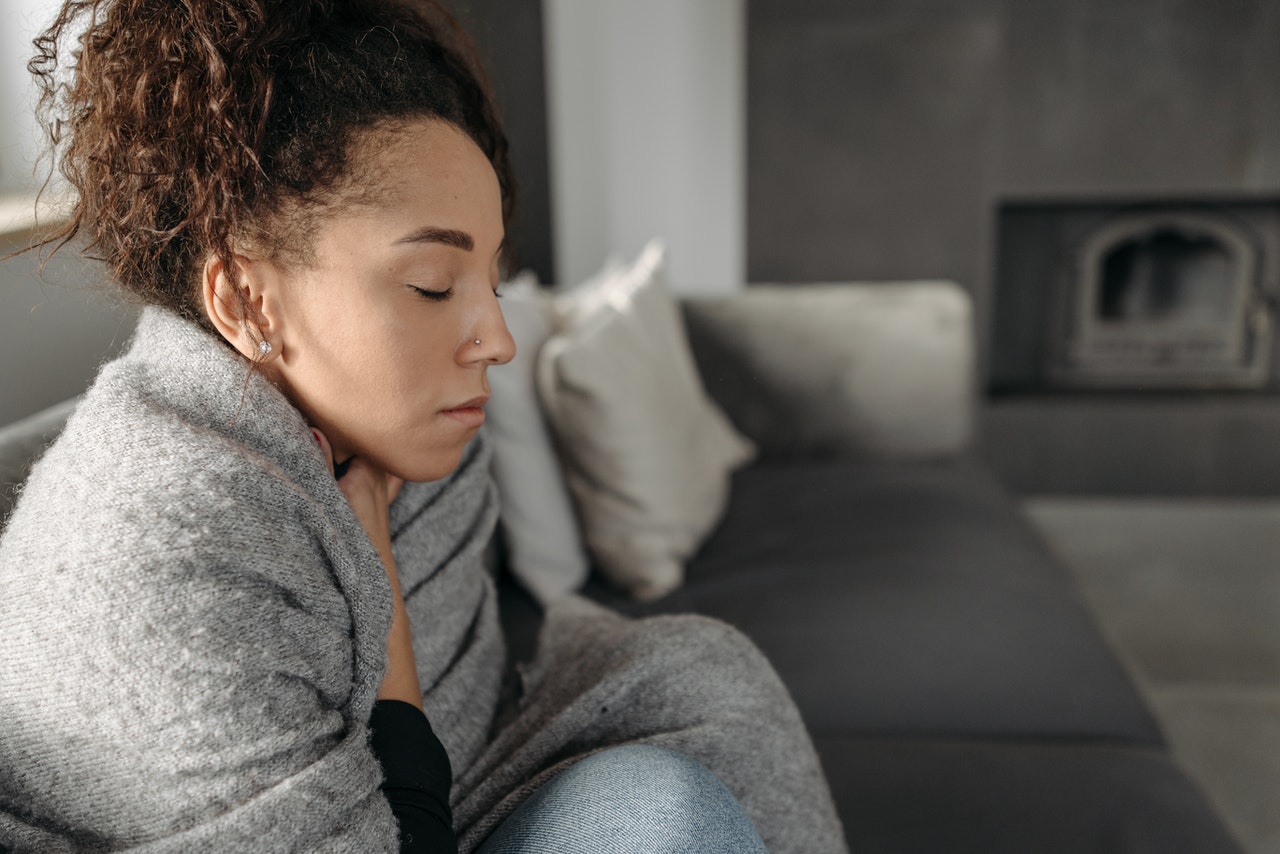The original version of this article was first published on The Guardian by Nicola Davis (follow her on Twitter).
 A study from researchers at the University of Oxford and NIHR Oxford Health Biomedical Research Centre found that nearly one in five people who have had Covid-19 were diagnosed with a psychiatric disorder – such as anxiety, depression or insomnia – within three months of testing positive for the virus. We speak to survivors about their experiences:
A study from researchers at the University of Oxford and NIHR Oxford Health Biomedical Research Centre found that nearly one in five people who have had Covid-19 were diagnosed with a psychiatric disorder – such as anxiety, depression or insomnia – within three months of testing positive for the virus. We speak to survivors about their experiences:
Eleanor, 35, therapist, Hertfordshire
Before catching Covid, Eleanor had no diagnosed mental health conditions, although she suspects she had low-level anxiety. Post-Covid, the situation is very different: Eleanor is seeing a private therapist to help with post-traumatic stress disorder and anxiety.
Eleanor said the deterioration of her mental health was, at least in part, down to her workplace and GP not taking her symptoms seriously when she fell ill at the end of March.
“I was told by my line manager that it couldn’t be Covid-19 as I didn’t have a persistent cough for over an hour. As my symptoms worsened over two weeks, I was told by GP that it was likely anxiety and that my lethargy could be explained as many found it hard to motivate themselves at this time,” she said. She eventually got so sick that she coughed up the mucous lining from her lungs.
There was no initial access to testing, and by the time a test was available through her workplace, Eleanor was so unwell she could not attend. Barely able to stand, Eleanor spent some nights wondering if she would still be able to breathe the next day.
By week eight she was still experiencing a fever. Her GP said it now seemed likely that she had had Covid.
Eleanor said that while there were other stressors, including having to postpone her wedding by several months, she believes the reaction of others to her illness took a toll on her mental health. “I think I was just so distressed and upset at not being believed or taken seriously,” she said.
Sophie, 26, support worker, Hampshire
Having fallen ill with suspected Covid in March, Sophie went on to develop panic attacks that lasted for entire days.
“Every day I was like: ‘I am going to be dead, I am going to be dead,’ even though I didn’t have it as bad as some people in the hospitals who were on ventilators and stuff,” said Sophie.
Sophie said she was still anxious and continued to take medication for her mental health, months after the virus passed.
“Everything seems to be just so built up in my head. Even just going to the shop is just stressful,” she said, adding that she had not had mental health problems before catching Covid.
While Sophie does not know why she has been left with anxiety, she said a number of factors could have contributed, from the lack of access to testing making it unclear whether she had Covid, to the constant stream of news about coronavirus and deaths.
“It could have been the feeling of just being breathless – you feel like you can’t breathe,” she said.
Jane, 66, bookkeeper, Welsh borders
Jane had experienced depression before she caught the coronavirus, but after falling ill with Covid she experienced the worst episode for 15 years.
Jane’s main symptom, at least at first, was a nasty cough that lasted for three weeks. But after that passed, she was left with extreme fatigue, replacing hour-long walks with just 15 minutes’ exercise before needing to rest. The fatigue was accompanied by severe depression.
“I have had depression in the past, and quite seriously, but have been able to manage it with generally looking after myself and fresh air, good food [and so on],” she said. But this time it was different.
“I was beginning to make plans to kill myself, drawing up lists of who needed to be informed, what I needed to do,” said Jane.
Jane consulted a psychologist, who also recommended she talk to a doctor about her fatigue and physical illness.
The GP said “all the symptoms absolutely point to it having been Covid”, said Jane.
As for why Covid triggered the depression, Jane said she believes it was down to the virus itself, whether directly or indirectly.
“I was just so tired all the time,” she said, adding that it made it difficult to do daily tasks such as washing up. “Also I began to lose hope that I would resurface because I just felt so lousy. I felt that I had aged 10-15 years, and it was quite scary thinking: ‘Is this it, really? Will I ever bounce back from that?’”
The fatigue and depression lasted about four months and Jane said she felt more forgetful than in the past. “Now I am about 90% right, physically and mentally,” she said.
The original version of this article was first published on The Guardian.
For more information on the types of therapy we offer, discover our counselling directory at LCC.




